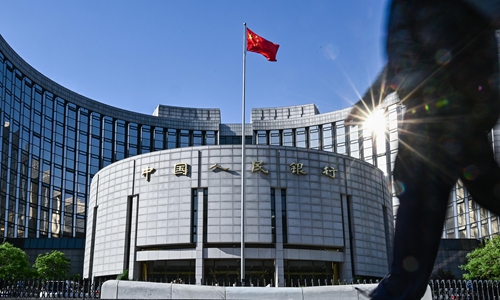
Photo:cnsphoto
China’s central bank on Friday announced a customer reserves management measure for non-bank payment institutions in order to strengthen the supervision of customer reserves and effectively protect the legitimate rights and interests of consumers.
Coming into force on March 1, the measures detailed rules for the deposit, use and transfer of customer reserves. It also named the responsibilities of involved regulating departments, including the People's Bank of China (PBC) and its branches, clearing institutions and others, according to a statement from the central bank.
Customer reserves refer to the cash actually received in advance by a non-bank payment institution for handling the payment entrusted by the customer, which is not the self-owned property of the payment institution.
The measure is one of the latest moves by Chinese authorities to overhaul the payment industry, from enhancing antitrust to reducing industrial risks, Chen Bo, director of the Digital Finance Research Center at the Central University of Finance and Economics, told the Global Times on Saturday.
Earlier, the PBC unveiled draft rules for non-banking payment institutions, intending to flesh out the regulatory toolbox that would include an anti-monopoly regulatory toughening of the payment sphere.
In accordance with China’s State Council campaign on reducing online financial risks, the PBC has already organized non-bank payment institutions to centrally deposit their customer reserves in January 2019. The non-bank institutions need to deposit its customers’ reserves in their specific account at the central bank every day.
The overall amount of customer reserves deposited at the central bank by non-bank payment institutions had reached 1.77 trillion yuan ($273 billion) by the end of 2020, official data showed.
China’s payment industry has been developed rapidly, meanwhile, there have also been operations violating laws and rules, accumulating risks and disrupting the market.
Against the backdrop of accelerating risks in the global financial market, China has paid close attention to upholding the stability of its financial market in recent years. For instance, China has overhauled the internet financial industry, with the number of peer-to-peer lending platforms falling to zero. Heightening regulations on the payment industry is one of the moves from China to manage risks and facilitate the healthy development of industries, Chen noted.
After the measures come into force, there is still a six-month-long transition period for related financial entities to upgrade each business procedure and system, and set up an information verification mechanism, among others, read the PBC’s statement.
Global Times
